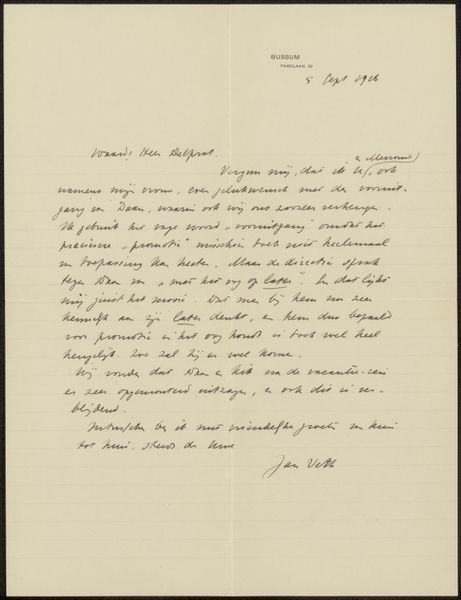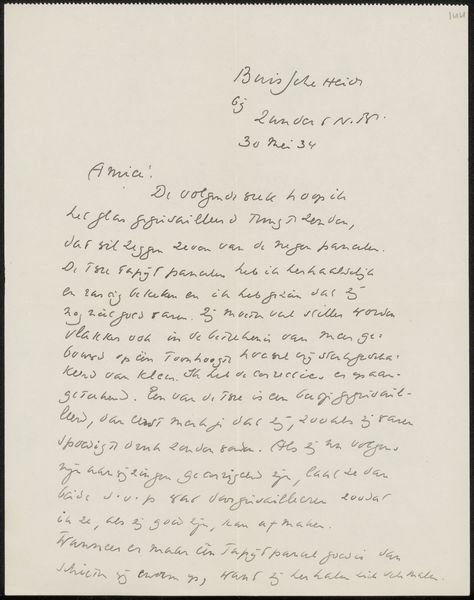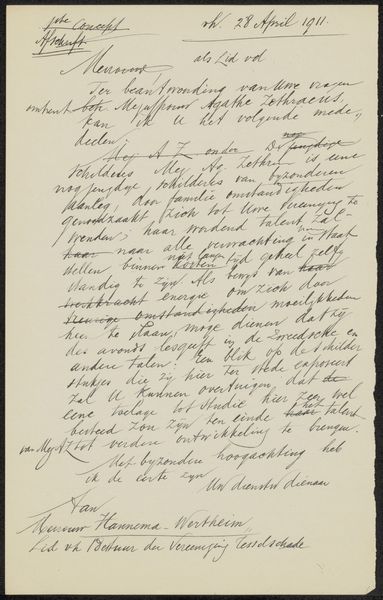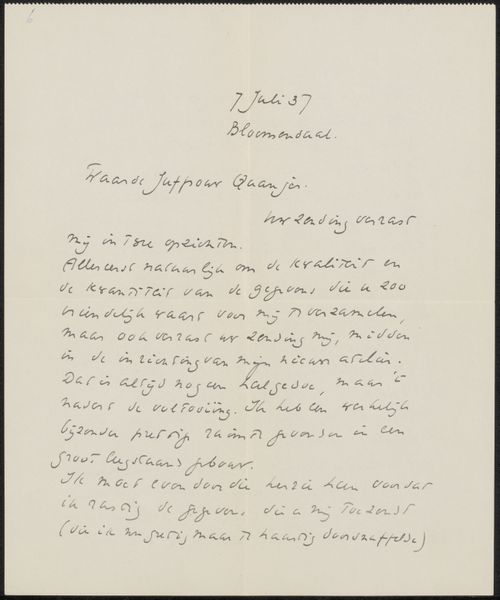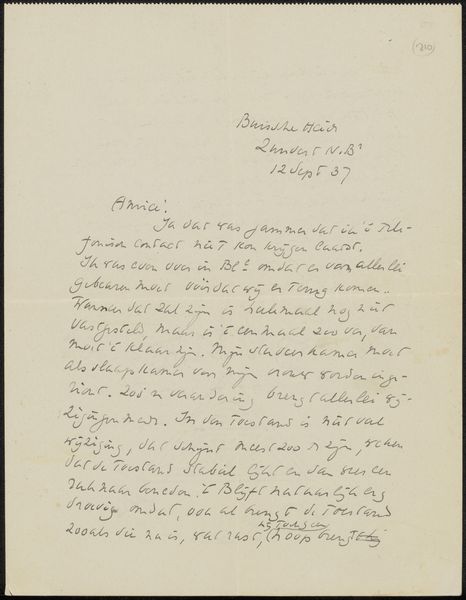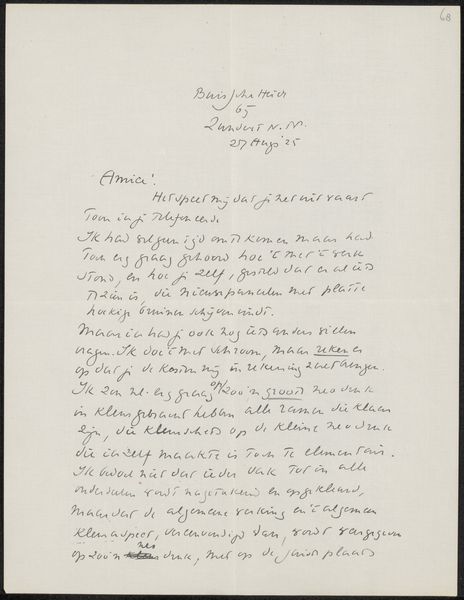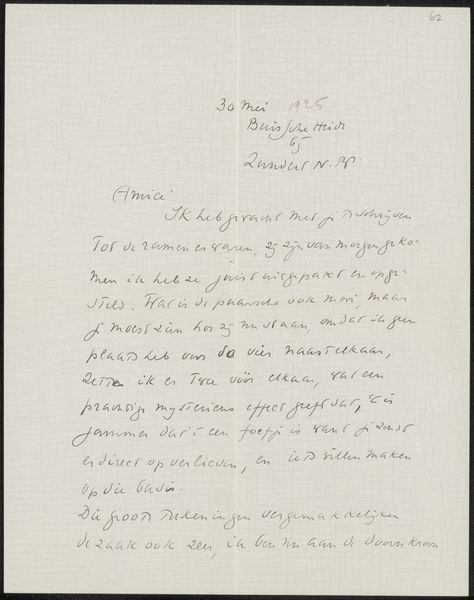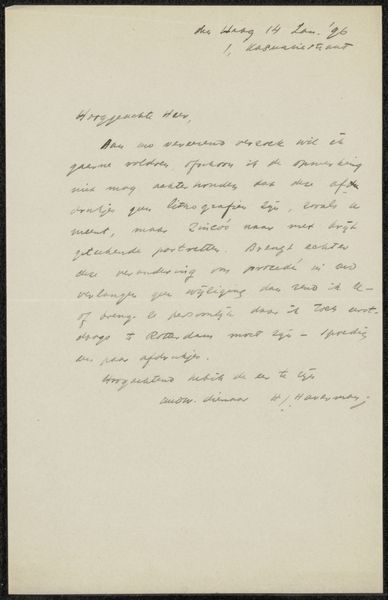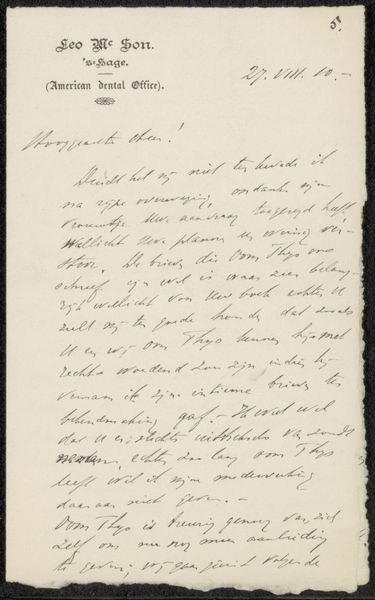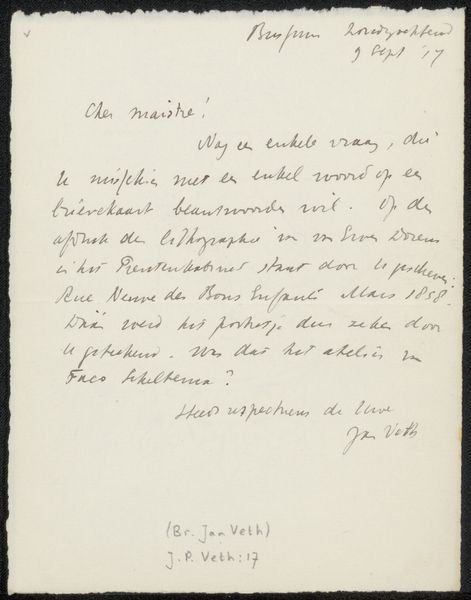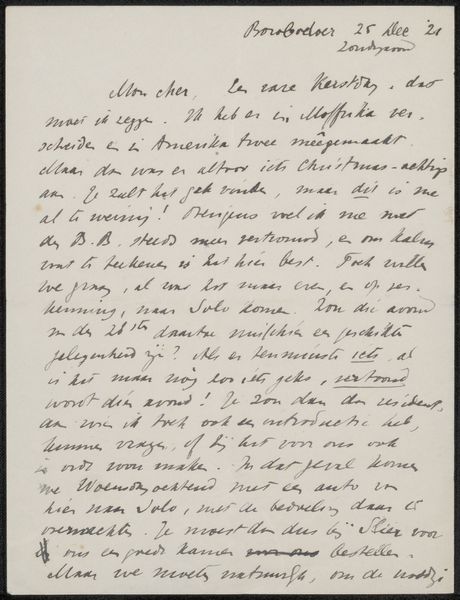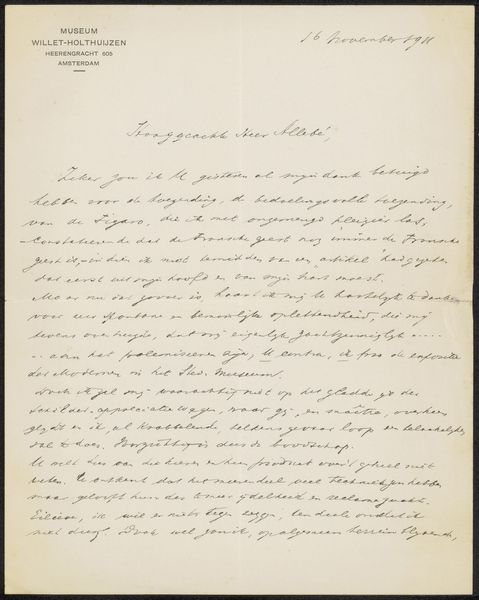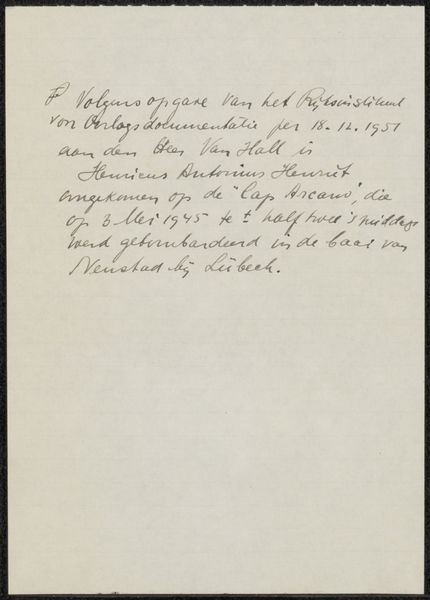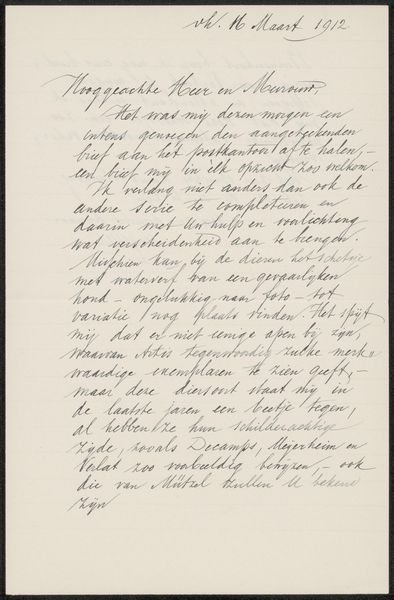
drawing, paper, ink, pen
#
portrait
#
drawing
#
ink paper printed
#
paper
#
ink
#
pen work
#
pen
#
modernism
Copyright: Rijks Museum: Open Domain
Curator: This intriguing artwork before us is a letter titled "Brief aan F.E. Posthumus Meyjes" created possibly in 1924 by Jan Veth. It is currently housed in the Rijksmuseum, and composed using pen and ink on paper. Editor: My first impression? Melancholy, almost ethereal. The delicate, flowing script dances across the paper, hinting at a deeply personal exchange. The paper itself seems fragile, as if touched by time itself. Curator: Indeed. Veth, who was a notable figure known for his portraiture and involvement in the Dutch artistic and literary scene, engaged here in a form of correspondence with F.E. Posthumus Meyjes, probably in regards to political matters. The choice of the medium, a simple pen and ink on paper, suggests an immediacy, doesn't it? It could be that his commitment to his work also shows the cultural conditions surrounding intellectual and artistic circles of the time. Editor: Absolutely! It feels unfiltered, straight from the artist’s mind. The letter's physical presence as a drawing feels so different than just reading text – you sense the very hand that penned these words. Curator: I agree, and we should note how the modernist style influences even something as commonplace as a letter. Its unadorned honesty and rawness really stand apart. Editor: And thinking of honesty, what do you suppose he intended when discussing delicate matters of potential "trouwe" and some sort of a political, I’d say, clash? The script almost veils certain meanings as if Veth struggled between what can be said, and what ought to remain unuttered. Curator: Precisely, that struggle to be both truthful yet cautious reflects a climate where certain viewpoints, even within intellectual circles, had to be navigated with care, so here Veth must carefully balance the importance of honest dialogues and possible counter narratives that existed at that time. Editor: Looking closer, I find myself wondering about Posthumus Meyjes, the letter’s intended recipient. Their relationship must have been complex, layered with trust yet perhaps also tinged with a quiet understanding of the potential for disagreement. It invites so much pondering on unwritten truths. Curator: It absolutely does. To close, I'd say the letter's importance resides not just in the explicit words, but in the contextual landscape they invoke, hinting to the struggles for ideological affirmation, a silent scream into the world's ear. Editor: I love that. For me, it's about seeing beauty in something so raw and unassuming. A beautiful dance of hidden and apparent ideas that ultimately connects us to the author through his creation.
Comments
No comments
Be the first to comment and join the conversation on the ultimate creative platform.
